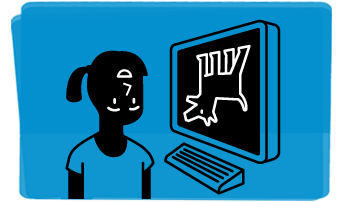News Article
Monday, May 1, 2006
While the ability to retain factual knowledge is not to be underestimated, knowing how many states were admitted to the union in the 20th century is less important than knowing where to find that information and what implications can be drawn from it. "Today's assessments might give an indication of some proficiency in a few basic skills," says Bernie Trilling, senior director of Oracle's Think.com and ThinkQuest programs. "They don't begin to measure all the skills that are needed now to ensure a good job, be a good local and global citizen, or have a satisfying life."
Efforts to define the learning, communication, and technical skills necessary to meet this educational challenge- often referred to as 21st century skills, and embracing Information and Communication Technology (ICT) skills, media and information literacy, and learning skills such as collaboration and problem solving- are underway, led by organizations such as the Partnership for 21st Century Skills and supported by a number of multinational high-tech companies. But in order to gain traction and establish this new kind of literacy as a cornerstone of 21st century education, we need new assessments that measure its attainment.
-Excerpt from the article.


